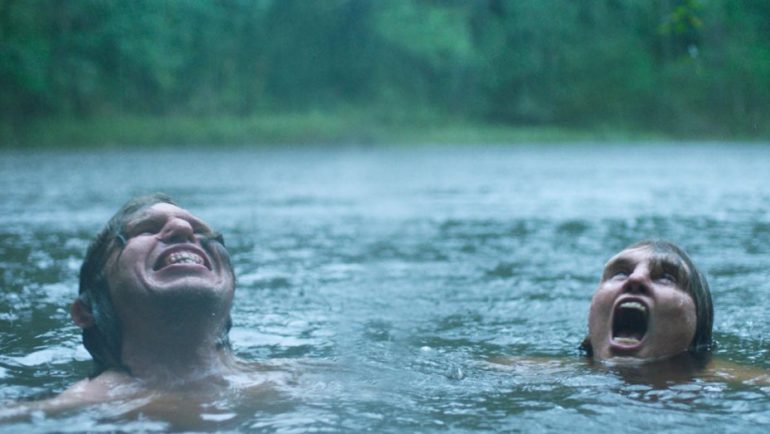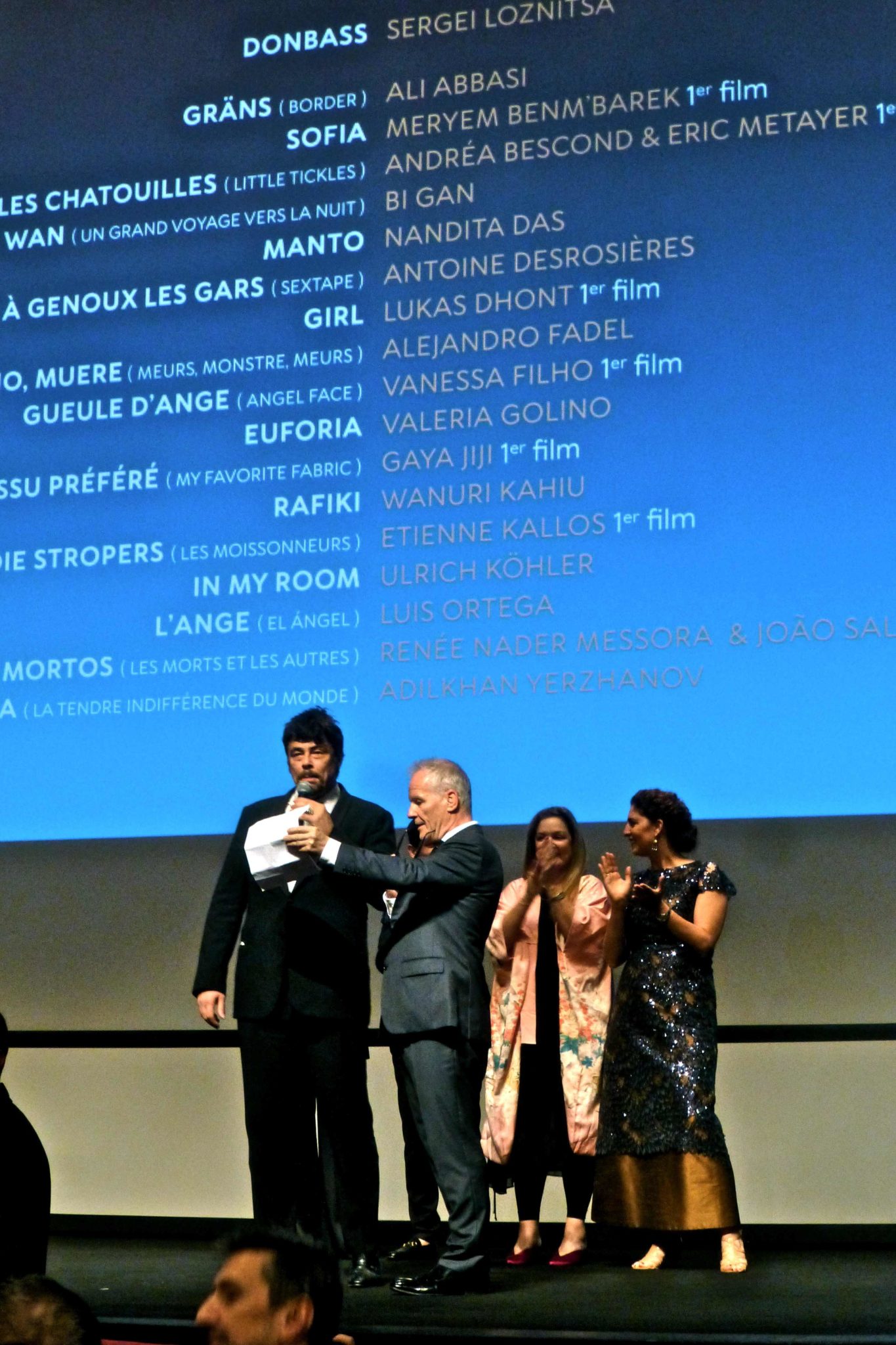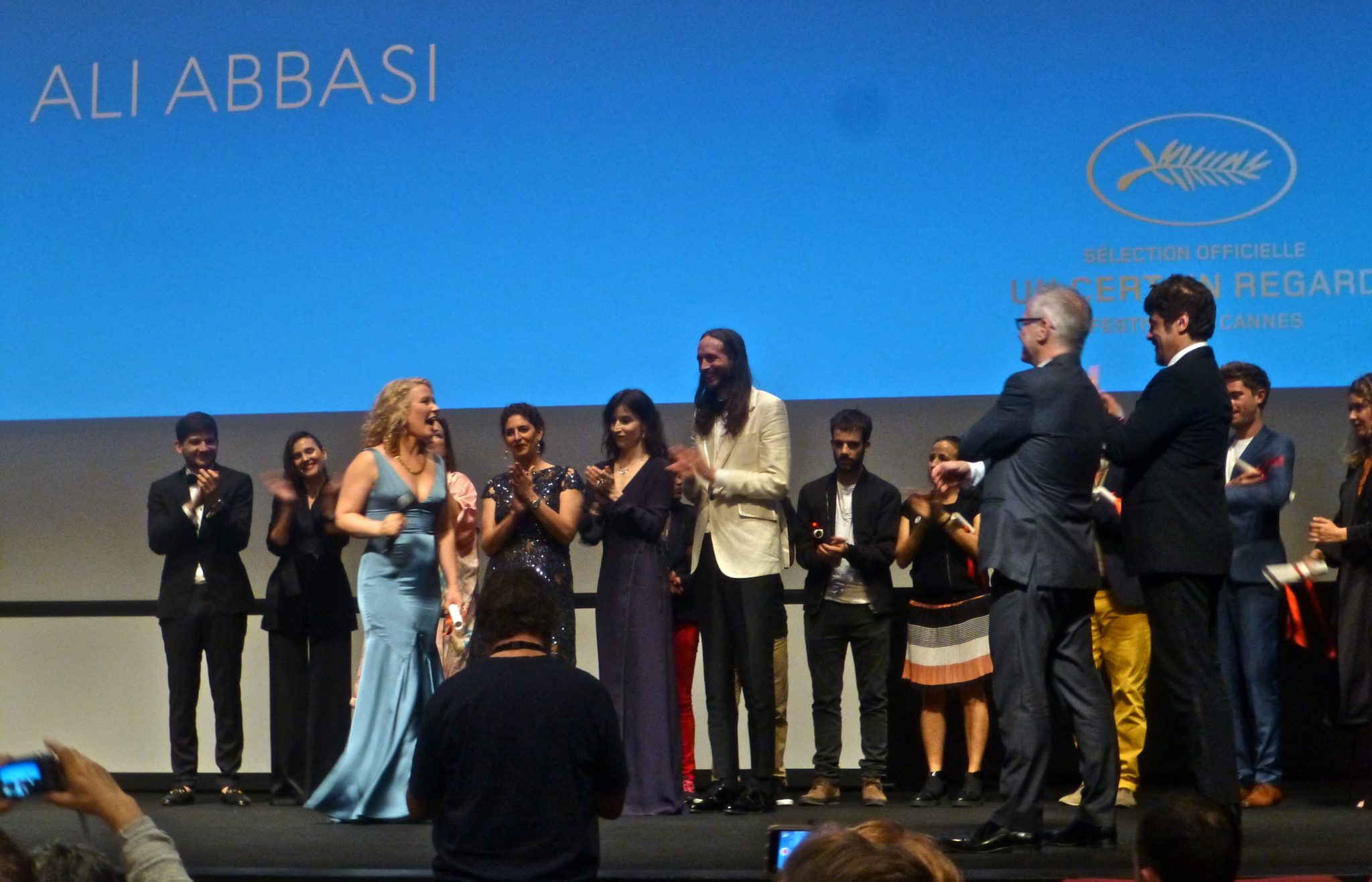Under the presidency of Benicio Del Toro (Puerto Rican-American actor), the Un Certain Regard Jury of Annemarie Jacir(Palestinian director and writer), Kantemir Balagov (Russian director), Virginie Ledoyen (French actress) and Julie Huntsinger (American executive director, Telluride Film Festival) ‑ really came up with the goods in awarding the top prize to Ali Abassi’s Gräns (Border) from Denmark-Sweden. A surprising film that navigates between genres in the deftest ways unimaginable, making it one of those films that renews the viewer’s attention as it (s)trolls to its destination. It begins by making what seems like well-meaning points about beauty and ugliness before promiscuously borrowing from Nordic mythology to create its own magical realism.
At a banal customs post in a ferry station, Tina discretely sniffs and her eyes cross inquisitively as she inspects passengers and senses those who are guilty of anything from too many bottles of booze to illicit porn on a usb key. She has a special animal like instinct that senses things other humans can’t. She is immediately suspicious of Vore who bears an uncanny resemblance to her own particular ‘ugliness’. She knows he is up to something but, despite her ESP, she could hardly imagine what other-worldly shenanigans this could be. It is an epic film about the extremes of identity and belonging that becomes a powerful voyage of discovery for Tina. Any more information would spoil the audience’s own voyage of discovery, suffice it to say the actors’ performances and ‘natural’ prosthetics are uncanny.
Who then is Teheran-born Danish filmmaker, Ali Abassi, to invent such a cinematic UFO? In an interview published in Nordisk’s site he speaks for himself:
Around 10 years ago, a friend of mine told me about Border a short story by John Ajvide Lindqvist. It stayed in my mind. Then I was offered to work on it. I felt that probably no one else would make a movie out of it because it’s a very challenging material. Most happens in the characters’ minds. I also liked the fact that it’s a universal story about identity, but with an edge.
…Co-writer, Isabella Eklöf, is a fellow director as well [she directed Holidays] who is interested in psychological realism, just like me. The central character being a woman, Isabella was more apt to write intricate details of how Tina should act or react. The major changes we did were adding a crime investigation sub-plot and a darker tone to the romantic story. I’m interested in the dark side of human consciousness, the existential problems that people are facing.
…(Border) is mostly a love story and about Tina choosing who she wants to be, and the experience of being part of a minority. Anyone can relate to that feeling, where your existence is not given, and you have to abide to rules set by others.
…I started as a writer and I’m very inspired by the magic realism wave of Latin American writers, like Gabriel García Márques, Carlos Fuentes. The most important literary device they use is to combine fantasy and realism. To capture life, and inner life, you need different layers. This is why the dreams, hallucinations of the characters are as real as their everyday life and part of their reality.
…Eva Melander and Finnish actor Eero Milonoff for the main roles were simply the best but it took me one and a half year of casting to find them! They are true character actors and went through major physical changes such as gaining 20 kg each! They were literally 100% body and soul into their parts.
Other prizes went to:
Best Screenplay: Sofia by Meryem Benm’barek, a tale of illicit pregnancy in contemporary Casablanca with a sharp immoral twist.
Best Performance: Victor POLSTER for Girl by Belgian director Lukas Dhont, recounting the balletic traumas of a teenage gender transition.
Best Director: Sergei Loznitsa for Donbass, a gratingly realistic analysis of human foibles in Russian occupied South Eastern Ukraine
Jury Special Prize: Chuva É Cantoria Na Aldeia Dos Mortos (The Dead and the Others) by João Salaviza and Renée NADER MESSORA, a Brazilian docudrama of the survival and ethos of one of the hundreds of endangered peoples.





